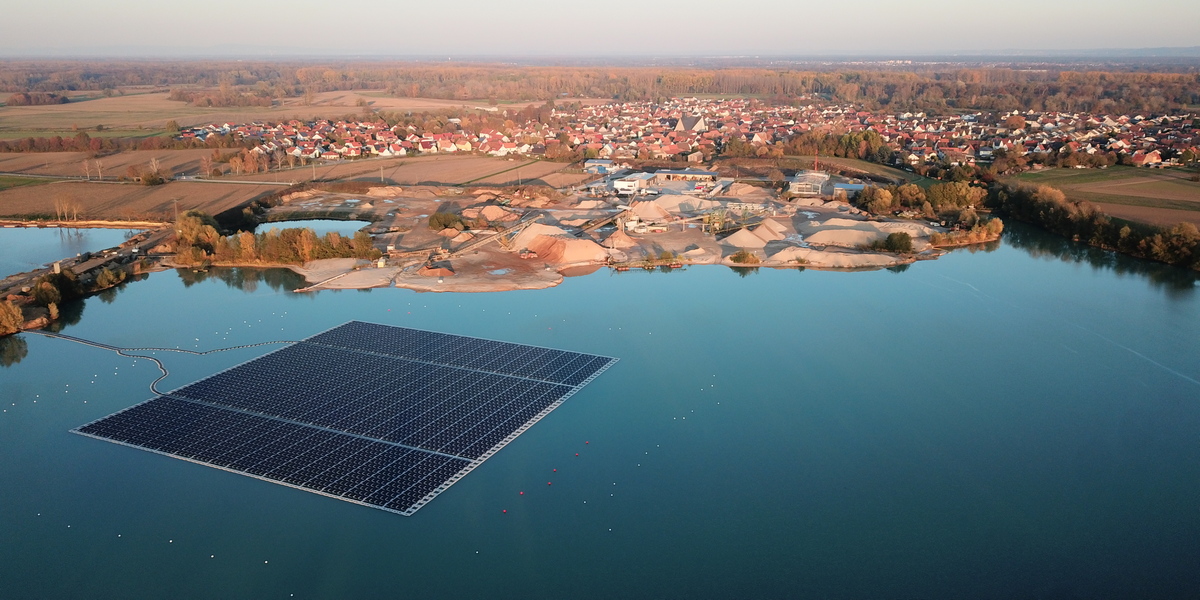From pv magazine Germany
The Dutch research institute TNO has carried out a detailed life cycle analysis of floating PV systems on behalf of the International Energy Agency's (IEA) Photovoltaic Power Systems Programme (PVPS). It shows that the floating systems have a slightly larger carbon footprint than land-based systems, mainly due to the additional components for the floating structure.
According to the experts, the carbon footprint of floating systems is around 15% larger than that of land-based systems with an east-west orientation. Compared to those with a south orientation, it is around 25%. However, floating systems have other advantages, such as the use of water instead of land and potential synergies with hydroelectric power plants.
According to their calculations, the CO2 emissions of floating systems are around 50 grams per kilowatt-hour of electricity generated, around seven times less than the current electricity mix in Germany and three to four times less than the EU-wide target for 2030.
For their analysis, the experts compared two real floating systems, one in Germany with a support structure made of high-density polyethylene (HDPE), and one in the Netherlands with a structure made of steel and HDPE, with hypothetical systems on land.
Recycling further reduces the carbon footprint
According to the experts, the carbon footprint of the floating system could be reduced with three measures: by using electricity from low-emission sources in the manufacture of the PV modules, by using recycled materials in the support structures and by recycling the HDPE at the end of its life cycle.
“Our study of two operating systems in Western Europe shows that floating photovoltaic systems on small inland waters can be a good complement to ground-mounted systems from the point of view of greenhouse gas emissions over the entire life cycle,” said Josco Kester, co-author of the study.
The researchers recommend further research into the environmental impact of floating photovoltaic systems, particularly with regard to the impact on aquatic ecosystems.
This content is protected by copyright and may not be reused. If you want to cooperate with us and would like to reuse some of our content, please contact: editors@pv-magazine.com.



By submitting this form you agree to pv magazine using your data for the purposes of publishing your comment.
Your personal data will only be disclosed or otherwise transmitted to third parties for the purposes of spam filtering or if this is necessary for technical maintenance of the website. Any other transfer to third parties will not take place unless this is justified on the basis of applicable data protection regulations or if pv magazine is legally obliged to do so.
You may revoke this consent at any time with effect for the future, in which case your personal data will be deleted immediately. Otherwise, your data will be deleted if pv magazine has processed your request or the purpose of data storage is fulfilled.
Further information on data privacy can be found in our Data Protection Policy.